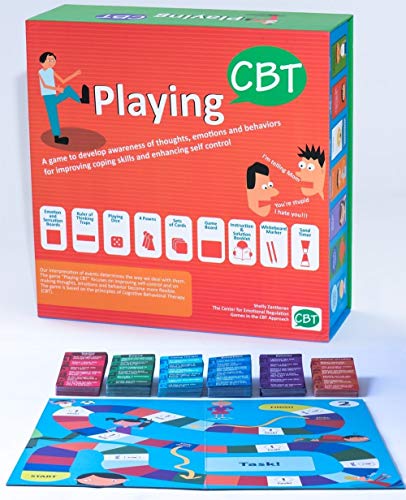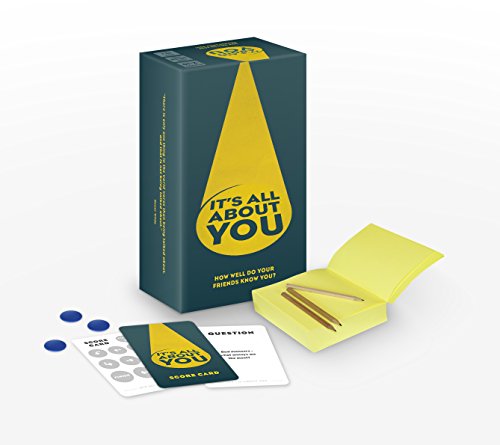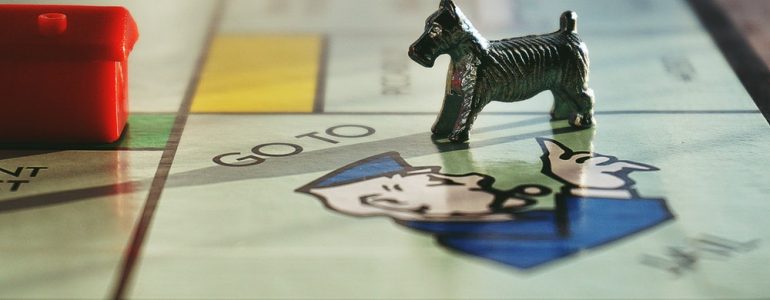For kids, a board game is much more than just for fun. It’s a chance to develop crucial skills in areas like problem solving and strategy.
Board games are even more beneficial for autistic kids. It’s an opportunity to help them improve on areas they struggle with like sharing, turn taking, teamwork and accepting occasional losses.
At the same time, they get to sharpen their thinking, get better at social interactions and enhance their fine motor skills.
Below, we’ve reviewed the five best board games for autistic kids.
1. 6 Personal & Emotional Skills Board Games
This board game will help your child develop important emotional skills they need to socialize with other people and develop self-confidence.
There are 6 games which you play using 24 counters and a die. The games include:
- Getting on
- Good to be Me
- Changes
- Keeping Calm
- Going for Goals
- Say NO to Bullying
Parents say the board game has helped their kids talk about important issues like bullying and self-confidence.
Why we love it:
- Helps autistic kids talk about various issues.
- Good for emotional development and improving social interactions.
- Good for improving self-confidence.
- Good quality board and pieces.
2. Didax Educational Resources Social Skills Board Games
This 6-game set emphasizes on specific skills that autistic kids need to interact with other people.
It also helps them improve their emotional skills, in terms of dealing with different emotions as well as showing emotions.
The games include:
- Morals
- Manners
- Empathy
- Friendship
- Showing emotions
- Managing emotions
Like the first board game above, this one helps kids speak up about various issues they might otherwise not talk about in another setting.
One thing we love about this game is that it goes beyond just talking. To progress within the game, kids have to display different emotions as specified in the game.
This helps them learn how to express their feelings.
The game can be played between kids and teachers or between a child and a parent.
The set includes 24 counters, a die and a spinner.
Why we love it:
- Great for emotional development in autistic children.
- Helps autistic kids interact better with other people.
- Quality pieces that will last long without breaking.
3. Playing CBT Board Game

This one’s a bit pricey but it’s also much more expansive. In fact, it’s designed as a therapy game to help autistic kids improve their social skills, self-control and emotional development.
It’s ideal for children (6 years and up) as well as adolescents. You can opt for the beginner or advanced game board depending on the age of the child.
Here’s what the game includes:
- Emotion board
- Physical sensation board
- 8 sets of cards including event cards, destructive thoughts cards, emotion cards and physical sensation cards.
- A thinking trap ruler
The game deals with almost all kinds of emotions that kids often encounter. By encouraging them to think and talk, the game helps them learn how to cope with different emotions.
It is also useful in behavioural therapy where children learn how to interact with other people in a healthy manner.
Why we love it:
- Very versatile – offers all-round help in many areas from emotions to physical sensations.
- Helps kids socialize with other people at home, in school and in the community.
- Great for emotional development.
- An effective and safe way to help kids talk about their feelings and experiences.
4. It’s All About You

If you are looking for a cheaper and simpler game than the CBT one, this is a great choice.
The game focuses on helping children (and adults) talk about themselves. The rules are very simple.
When it is your turn, you ask a question about yourself and everyone else guesses the correct answer. The one with the most correct guesses at the end of the game wins.
The game doesn’t focus on specific skills or emotions. It’s simply a great way to get everyone relaxed and talking.
Autistic kids get the chance to talk about themselves and interact with friends or family members. This can help them become more confident when socializing with other people.
The seller recommends the game for players 12 years and above.
Why we love it:
- A fun family activity.
- Helps autistic kids improve their self-confidence and socialization skills.
- Simple and easy to play yet lots of fun.
5. Orchard Toys Bus Stop Game
If your autistic child is good with numbers, this is a great board game. If they are not so good, the game will help them get better.
It is a simple counting, addition and subtraction game.
The main part of the game involves spinning a spinner to add or remove passengers from a bus. The player with the most passengers by the time the bus gets to the bus station is the winner.
But it’s not all numbers. You can also have fun asking kids to identify different kinds of passengers – the ones wearing a hat, the one with a moustache and so on.
The set includes:
- A thick and durable playing board
- 4 buses (flat boards)
- 4 bus counters
- 4 stands
- 40 passenger cards.
- 1 dice, spinner board and spinner arrow plus an instruction leaflet.
The game is ideal for ages 4 to 8 and can be played by 2 to 4 players.
Why we love it:
- Quality board and pieces that will last for years.
- Teaches kids basic math skills as well as turn taking.
- Lots of fun for the whole family.
How We Picked the Best Board Games
We looked for board games that benefit autistic children in many different ways including emotional development, socialization and coping skills.
We preferred board games that encourage children to speak up because that’s often the best way to learn and communicate.
All the board games we picked involve a lot of communication that teaches kids to express their emotions and learn proper behaviour especially when it comes to interacting with other people.
The interactive nature of these board games is also great for families who are looking for a fun way to spend time together.
What to Consider When Buying a Board Game for an Autistic Child
1. Growth and Development Benefits
Look for board games that focus on specific aspects of the child’s development such as emotional skills, coping mechanisms and self-confidence.
These are the ones that will benefit your child the most and complement any ongoing behavioural therapy.
Different games focus on different areas. Some lean more towards self-confidence and self-control while others are more focused on things like friendship and empathy towards others.
Pick the one that offers help in areas where your child struggles the most.
2. Additional Skills
Board games are not just about emotions and social interactions. They can also improve many other skills.
Take the bus stop game we’ve reviewed above for instance. It introduces kids to basic math skills in a simple and fun way.
Other board games teach children about colours, others are based around wildlife and others are good for language development and turn taking.
Depending on your child’s development and learning needs, you may need to buy a couple or more board games.
3. Age-appropriate
Pick a board game that is appropriate for your child’s age. Check the manufacture’s age range recommendation before buying.
A board game that is too complex for your child will cause frustrations and won’t help as much. A board game that is a bit too simple for them may feel boring.
Note that most board games are not appropriate for children under three years mostly because of the small pieces.
4. Fun
Obviously, the game needs to be fun to play.
Look for a game with fun twists and turns that will keep your child entertained even as they learn important life concepts.
5. Quality
Finally, make sure you get a good quality board game. The board and the pieces should be well made, safe and durable.
A good quality board game can easily last for years.










Any of these games are available in french